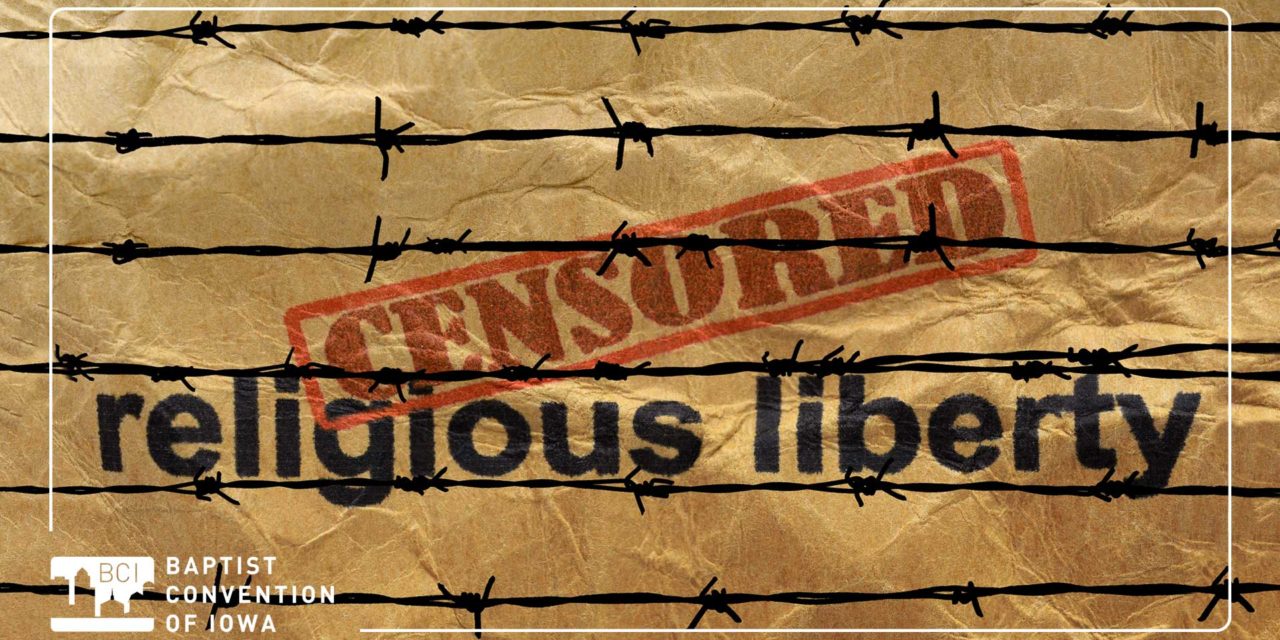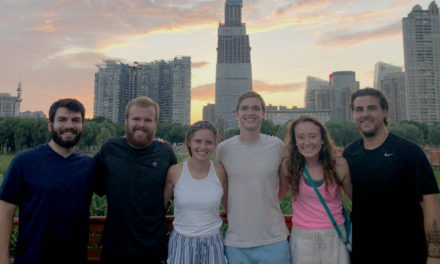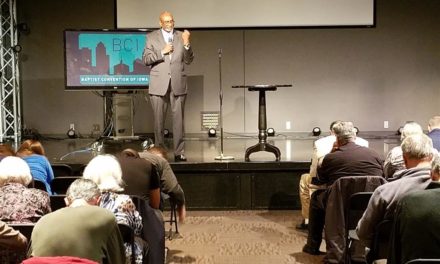The Challenge Ahead: Religious Liberty
By Chris Eller, BCI Associate Executive Director
Forced to choose a single word to describe the year of our Lord 2020, it would have to be “unprecedented.”
From a global pandemic that shut down the world to a “land hurricane” that left a path of destruction several hundred miles long in the state of Iowa, we have watched many unprecedented events this year.
Like a ship at sea, the church has ridden the rough seas and even found itself in the midst of the storm. For example, churches in some states like California and New York have endured much greater persecution than churches in states like Iowa. These instances of state challenges to religious freedom are not isolated, however, and the trend line points to an increasing loss of religious liberty in America.
Justice Alito’s Warning
Last Thursday, Nov. 12, Supreme Court Justice Samuel Alito delivered the keynote address to the Federalist Society. The focus of his speech was to issue a warning concerning the loss of religious liberty.
“In certain quarters, religious liberty has fast become a disfavored right,” Alito said. “For many today, religious liberty is not a cherished freedom. It’s often just an excuse for bigotry and it can’t be tolerated even when there’s no evidence that anybody has been harmed.”
Alito noted how the pandemic in 2020 accelerated efforts to restrict religious liberties and was used as cover to force the closure of churches and houses of worship.
The underlying risk, however, goes well beyond the pandemic. For many places in America, the very existence of religious liberty is a threat. “The question we face is whether our society will be inclusive enough to tolerate people with unpopular religious beliefs,” Alito stated.
The Overton Window
Christians need to understand the Overton window named after Joseph P. Overton who defined the theory. The Overton window represents how far a politician can go on policy issues that range from less freedom to more freedom. As the window shifts left or right and grows or shrinks, it defines what is considered popular, acceptable, extreme, or unacceptable.
An example of the Overton window is found in the culture war over marriage. In 1996, Bill Clinton, a Democrat, signed the Defense of Marriage Act, which defined marriage as the union of one man and one woman. According to the Overton window, this was the popular move for Bill Clinton to make. In 2008, Barack Obama affirmed the Defense of Marriage Act and supported traditional marriage. Again, the Overton window showed that this was the right political move for Obama. In 2020, however, the Overton window has shifted completely on the issue of marriage and is now much narrower. Few politicians stand for traditional marriage because politically, the issue has gone from popular to unacceptable. Holding to a biblical/traditional view of marriage is not only out-of-sync with cultural views, but is now considered hateful, bigoted, and homophobic.
The Overton window is shifting when it comes to religious liberty. As Alito noted in his address, holding overtly Christian beliefs is becoming more and more unpopular within our culture and is trending towards being unacceptable in many Leftist circles.
Just this past Friday, celebrity Melissa McCarthy and HBO rushed to apologize to offended followers for unintentionally donating $20,000 to Exodus Cry, a nonprofit committed to abolishing sex trafficking. What offense did Exodus Cry commit? They identify as a “Christian organization” and have ties to “anti-LGBTQ and anti-abortion” causes.
McCarthy was quick to apologize to her followers and acknowledged, “we blew it.”
In a video released to McCarthy’s 8.9 million Instagram followers she stated, “It has come to our attention that our ’20 Days of Kindness,’ which is something — a kindness that we started to kind of shine a light on 20 great charities — had one in there that, there’s no other way to say it, we blew it. We made a mistake and we backed a charity that upon proper vetting, stands for everything that we do not,”
This is just one example from a growing sea of open assaults on religious liberty. As a church, we need to acknowledge the threat that is standing at the door. If you hold to biblically-based doctrine, those beliefs are becoming increasingly unpopular in American culture and are moving quickly towards being unacceptable.
Are You Prepared?
What do you need to do today as you consider the threat facing the church? Here are several starting points:
- Start following the Alliance Defending Freedom blog. The BCI has partnered with ADF to fight for religious liberty. Their attorneys are on the front line of the legal battles confronting churches and Christians around the country.
- Conduct a thorough review of your church’s bylaws and policies. The BCI partners with Brotherhood Mutual to help churches with property and liability risk. When a church faces a legal challenge in the area of religious liberty, it is essential to have up-to-date policies that clearly and accurately define a church’s stand on issues. Would your church baptize a transgender person? The time to articulate your belief on this issue is now, not when someone approaches you about being baptized as a man who identifies as a woman. If you haven’t defined your belief on this issue in your bylaws, chances are the courts will view your stand as a personal attack on an individual rather than a standing policy. You can find several helpful resources on religious liberty on the Brotherhood Mutual website.
- Begin developing and strengthening relationships within your community and with government leaders in your city, county, and state. Religious liberty is threatened on two fronts right now: public opinion and government authorities. As a church, you need to be proactive in developing and strengthening relationships with your community and your government leaders. If all people know about your church is that you are “anti-LGBTQ and anti-abortion,” you have lost this battle. If you are known as an active investor in your community and as a church that has faithfully and effectively pastored well beyond your church walls, you will have many more friends and advocates when you find yourself in the crosshairs of someone who is determined to destroy you for your beliefs. To help facilitate connection with our community and government leaders, the BCI partners with the Church Ambassador Network. Greg Baker leads this effort and joined us for a conversation as part of our 2020 BCI Virtual Annual Meeting. Here is the link to the full video interview: https://youtu.be/ZrwnWpBB7NM
- Start following the SBC Ethics & Religious Liberties Commission. The Ethics & Religious Liberty Commission is an entity of the Southern Baptist Convention dedicated to engaging the culture with the gospel of Jesus Christ and speaking to issues in the public square for the protection of religious liberty and human flourishing. ERLC exists to assist the churches by helping them understand the moral demands of the gospel, apply Christian principles to moral and social problems and questions of public policy, and to promote religious liberty in cooperation with the churches and other Southern Baptist entities.
Your religious liberty is at risk. Don’t take my word for it. Don’t take the word of Justice Alito. Listen to our Lord Jesus Christ. In John 15:18-25 He states,
“If the world hates you, you know that it hated Me before it hated you. If you were of the world, the world would love its own. Yet because you are not of the world, but I chose you out of the world, therefore the world hates you. Remember the word that I said to you, ‘A servant is not greater than his master.’ If they persecuted Me, they will also persecute you. If they kept My word, they will keep yours also. But all these things they will do to you for My name’s sake, because they do not know Him who sent Me. If I had not come and spoken to them, they would have no sin, but now they have no excuse for their sin. He who hates Me hates My Father also. If I had not done among them the works which no one else did, they would have no sin; but now they have seen and also hated both Me and My Father. But this happened that the word might be fulfilled which is written in their law, ‘They hated Me without a cause.'”
Jesus uses the word “hate” seven times in this single passage; the emphasis cannot be missed. We need to heed His warning and live and act accordingly. Throughout most of church history, true Christians have faced the hatred of the world and the consequences of this hatred.
As Americans, we lived for over 200 years as a people blessed with religious liberty and freedom of speech. Those freedoms are now at great risk and can quickly slip away. We must shepherd well in the coming months as this story continues to develop.
Have a BCI church story to share?
We love to share stories of BCI churches and draw attention to the work God is doing in our convention. Submit your story using the online form.









